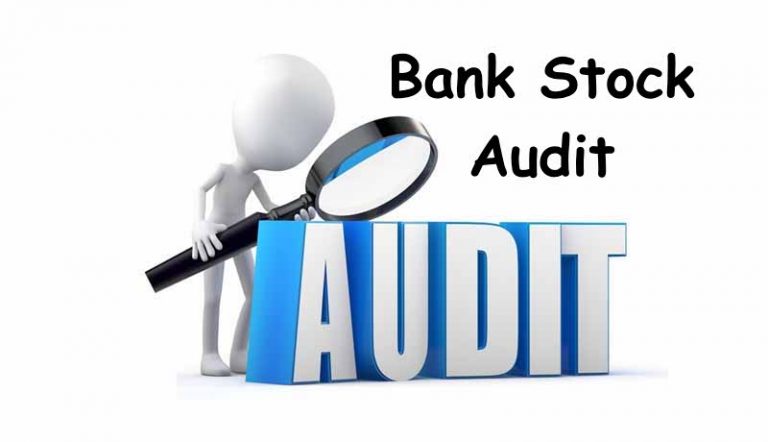Bank Stock Audit: Stock Audits are important from our profession point of view, as it gives us recognition in banking field & opens door for lot of opportunities in the Banking sector. As a Cost Accountants, we can bring our techno-commercial knowledge & experience in field restricting NPAs in the banking sector by early detection of problems in the industries.
Bank Stock Audit
As a stock Auditor what bank expects from us? It is the audit by the professionals ensuring the safety of the bank’s funds. There are different formats of different banks which are to be complied with respectively but the broad lines it can be explained as given below
- 1) To take physical stock on given day, find out the reasonable value of the stock, to reconcile it with book stock (ignoring value of Non-moving / slow moving stocks) & to give our professional opinion whether there is reliable reporting system
- 2) To understand from records what is amount of book debt on the given day, say outstanding for reasonable period (say, 90 days), how the billing & realization is accounted in the books of accounts, & reliability of the system
- 3) Considering the margin as agreed by bank & the party, to find out realizable value (net of amount payable to creditors), which in banking parlance is called ‘Drawing Power or D P’. Comparing this DP with outstanding amount of facility given by the bank or enjoyed by the party, we arrive at the conclusion whether banks funds are safe.
Further it has to be ensured / certified that the stocks are kept properly, they are insured with proper value, whether inventory is managed properly-the stocks are adequate in relation with the production requirement To see whether statutory liabilities are paid in time.
The stock auditor has to also go through the Financial audit report & earlier stock audit report if it is done to know whether the corrective actions are taken considering comments of the auditors.
Also, to see whether there is additional liabilities as outstanding acceptances under usance letter of credits established by other banks or contingent liabilities or Related party transactions.
Thus, stock auditor acts as representative of the bank & to protect / safe guard the interest of the bank.
We are in this field for long time Wesharesome of our experiences here- may be, it is useful for newcomers / youngsters in this field.
a) Taking physical stock
In one of the factories, the stock was huge. It was stored in number of huge go downs, (say average, 3000 sq.ft. base area X 40 ft. height). The stock was packed in gunny bags of same weight (in brick fashion). It would have taken us weeks to count those bags/stock.
We asked them to stack 20 bags in same brick style fashion. We measured the dimensions of the sample stack. It was then easy to estimate the total number of bags in go downs using the same proportion.
b) Checking realization from debtors
In one company under Consortium finance (from 3 nationalized banks), it was noted that the amount deposited by different distributors in bank was with the same cheque book. We, then, found out that the party has opened account in one private sector bank through which they were routing their collections & thus, violating important condition of sanction letter.
c) Use of bank funds
In one company, we found that a asset having big value was purchased & installed just week before our visit. When queried, the accounts manager replied that the investment was made from their own funds. It was obvious that banks funds meant for short term utilization was used for investment in machinery i.e. long term utilization. The factory operations would be hampered for want of working capital. This is not allowed as per bank’s sanction letter.
d) Diversion of funds
In one firm having 3 partners a loan of the substantial amount was given to other firm in which two partners (of the three partners) were co-owners.
e) Tools accounted as stores/spares
In the company a particular tool having value more than lacs of Rupees, was kept in stores after its use in production floor. Its value was shown in stores statement.
We also had pointed in our report lapses on part of bank officials where ever noticed.
Like in one company 80% of stock value was of Finished goods & work in process. The earlier stock auditor (not CMA) had in his report commented Quote ‘The production was in process when we visited the factory. As stock were moving, we had relied on stocks/stock value certified by the management’ Unquote. This report along with the comments was accepted by the bank officials.
Like in one company while submitting the monthly report to the bank, some stock figures were repeated almost for 4/ 5 months (copy paste hazard). It was evident that the bank’s concerned official in the branch had not checked the data submitted by the party for month’s together.
It is interesting to note that our such reporting with adverse comment was also appreciated by the bank management & we continued to get new assignments from the bank.
(Please note that the examples given above are all real incidences/experiences however we can neither quote name of the parties or banks for the obvious reason)
Must
